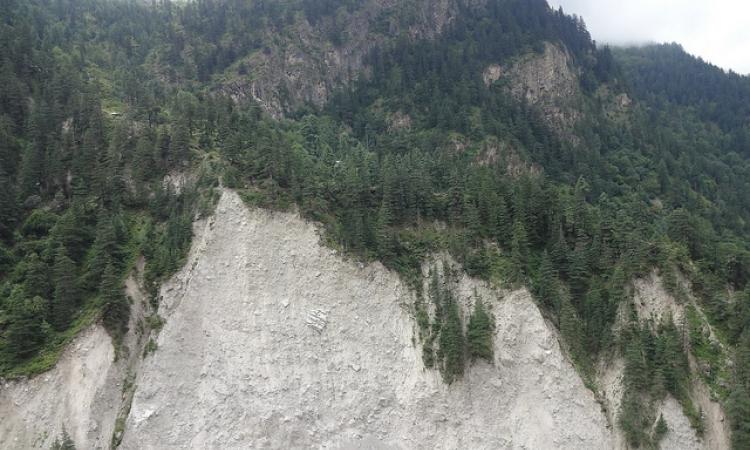
Massive landslides occur in Nepal and Pune's Malin village
A massive landslide has taken place in Nepal on August 2, 2014, which has blocked the Sunkoshi river on the Nepal side and formed an artificial lake. The situation has put nearly 2.25 lakh people across nine districts in Bihar under threat. However, as a preventive measure, the state government has ordered areas along the Kosi embankments to be evacuated. For now, three holes have been drilled in the one km wide debris to allow the controlled flow of water downstream.
Disaster strikes Pune's Malin village
One more massive landslide has occurred in Malin village of Pune district which has claimed 41 lives and buried more than 125 people. The real estate boom and illegal stone quarrying on the one hand and unscientific paddy cultivation on the other are being touted as the cause of this disaster. However, the Centre is awaiting the report of Geological Survey of India to come to any conclusion. Malin was identified as an ecologically sensitive area by the Kasturirangan committee in its report on the Western Ghats.
46% of sewage in Delhi flows into the stormwater drains uninterrupted: CAG
According to the CAG report, 46% of sewage generated in the capital flows into the stormwater drains and the authorities fail to take any action in this regard. Delhi does not have an appropriate master plan for drainage and the one currently followed dates back to 1981. The efforts that were initiated in 2005 to prepare a drainage action plan of the city still remains incomplete while waterlogging continues to occur across the city even during moderate rainfall.
Human activities have raised water vapour in atmosphere: Study
A recent study has confirmed that human activities have raised the levels of water vapour in the upper troposhere, which is a region 3-7 miles above the earth's surface. This will intensify global warming as the moistened atmosphere will trap more radiant heat and further increase the temperature. Water vapour as a greenhouse gas is expected to have an impact on climate over the next decade according to scientists.
Madirepalli farmers in Andhra Pradesh cultivate paddy in a drought-prone area
Farmers of Madirepalli, a small village in Anantpur district, Andhra Pradesh, have revived gonchi, a traditional water sharing system to cultivate paddy in both the kharif and rabi seasons. Geographically, the village receives scanty rainfall and experiences desert-like conditions because of which it has been covered under the Desert Development Programme. Despite such a situation, farmers, through community participation, have successfully preserved the system of digging pits and diverting water through a network of distribution systems.
This is a weekly roundup of important news from July 29- August 3, 2014. Also read last week's policy matters updates.